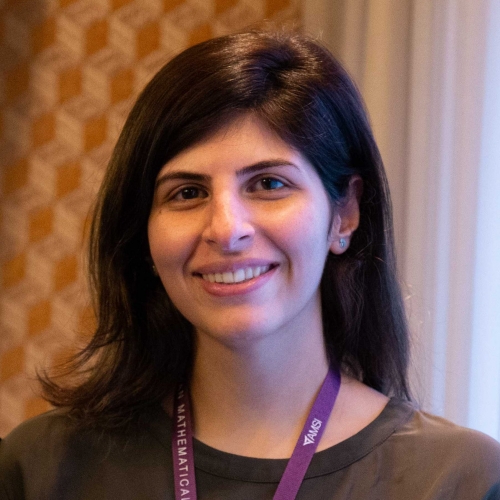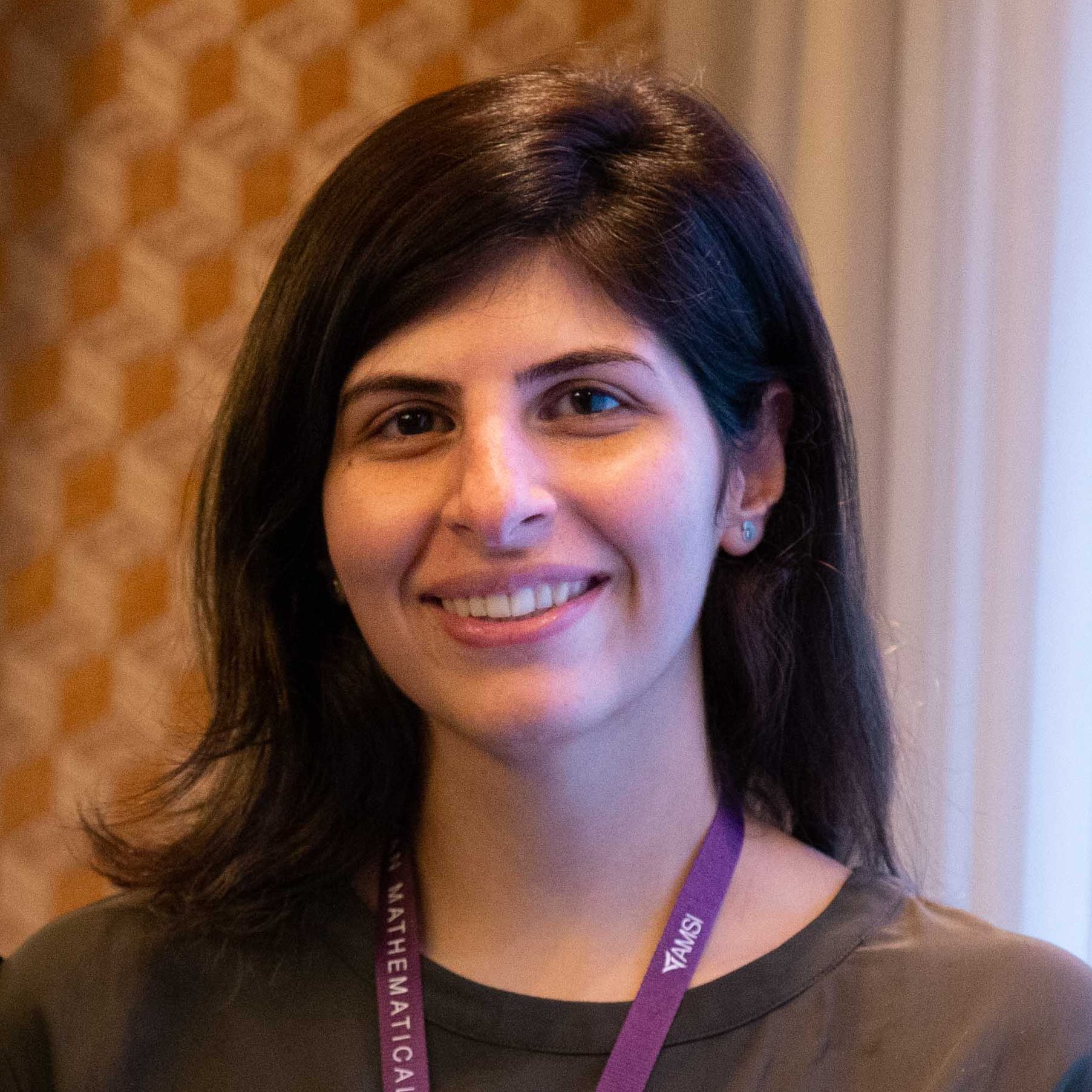
Delaram Pahlevani
RMIT University
I am a PhD candidate in Mathematical Sciences at RMIT University. My research mainly focuses on data analytics in retail operations and data-driven approaches to decision-making under uncertainty. I am particularly interested in settings where estimation and optimisation are integrated to make dynamic operational decisions. I received my bachelor’s degree (Honours) in Engineering from Amirkabir University of Technology in Iran.
Can you give me a quick overview of the type of mathematics you are studying and its potential impacts for the broader community
Currently, I’m working on assortment optimisation. I continuously monitor customers’ preferences and interests along with the business. By doing so, I’m able to find an optimal assortment leads to satisfy customers’ favourite as well as maximise the company’s revenue.
You attended AMSI Optimise, what drew you to this event? What was the most valuable part of AMSI Optimise for you in terms of furthering your career in mathematical sciences?
I would like to thank AMSI for organising an awesome business breakfast on the second day of the conference. It was a great opportunity to understand what industry people are working on in different areas. Then, finding how mathematics can play a role to improve their operations.
Did this event lead to any new contacts, projects, collaborations? What were some outcomes in terms of your work?
Not at the moment as I just finished the first year of my PhD, although this event was a great opportunity to meet some famous people in academia as well as industry which might lead to future collaborations.
The key aim of Optimise is to strengthen research-industry collaboration within this key mathematics innovation space. How effective was this event in stimulating such discussion and opportunities?
In my opinion, AMSI Optimise was excellent. Having many famous people from industry opens up a new window for doing scientific research with practical application.
What do you think are the key challenges for Australian industry-research collaboration within optimisation? What needs to happen to strengthen these linkages?
I believe that academic people are too isolated. As long as researchers stay away from practice or vice-versa, the possibility of industry-research is decreasing. Companies need to be shown that outcomes achieved through investment in a research project is an effective use of their financial resources.
How important was receiving a CHOOSEMATHS grant in terms of your ability to attend and fully participate in the AMSI Optimise 2019 sessions throughout the week?
Honestly, without this grant, I couldn’t attend any of AMSI Optimise, neither the conference nor workshops.
How important are initiatives such as the CHOOSEMATHS Grants in terms of fostering the participation and achievement of women in mathematics, particularly in terms of access to networking opportunities and further training opportunities?
A lot. As I mentioned earlier, most of the researchers are too isolated; it’s more intensive among women researchers because of many reasons, such as having bad experiences being humiliated or judged in the past. Gender equity initiatives have helped to improve this recently but more work still needs to be done. Programs such as CHOOSEMATHS Grants not only encourage women researchers to participate in networking but also has a positive outside effect on society.
In what ways has the experience impacted your maths studies? Has it influenced the direction of your research?
Anyone looking for a new idea to work on, must attend a conference and listen to peoples’ talks. For me, a solution approach in someone’s presentation sounded interesting to me so I applied the solution approach on my model. Surprisingly, it worked better than my previous solution and improved my results significantly.
Did you always want to pursue a career in maths? Were you encouraged to study these subjects at school?
I never thought that someday I would be doing a PhD in maths, even though mathematics has been my interest since year 7. I chose to study Mathematics and Physics as my primary major at high school for three years, but my bachelor’s degree was in Engineering. Finally, I was back to Maths for a PhD.
Where do you see yourself in five or ten years time?
I’m interested in being in Academia, so I’m thinking about doing a postdoc after finishing my PhD. I’m also keen to find a project with the possibility of collaboration with industry.
Did you learn about new career options available to you that you were not aware of prior to attending AMSI Optimise?
Absolutely, many industry speakers gave a presentation and talked a lot about how research could contribute to making situations better. For instance, Mr Dan Sutherland spoke about new opportunities for optimisation in oil and gas, which sounds interesting. For me, it was a big chance to hear about how I can apply my skills and knowledge towards improving the efficiency of operating systems in any company if I won’t be going to stay in academia.
If a peer asked you if they should attend AMSI Optimise, how would you describe the conference to them?
I highly recommend AMSI Optimise to anyone who is working in maths and optimisation, specially as an operational research analyst.
Any other feedback/comments you would like to provide on the CHOOSEMATHSgrant or AMSI Optimise?
I would like to thank AMSI for giving me this valuable opportunity to network with many experts in optimisation. It opened up a new window to my future research.

